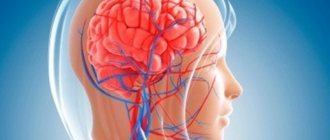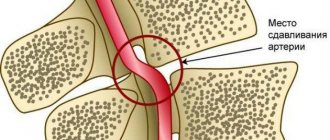Your menstrual cycle says a lot about your health. It is necessary not only to monitor it, but also to respond to violations.
Do you know when your last menstrual period started or how long it lasted? If not, it may be time to pay attention. Monitoring your menstrual cycle will help you know when you ovulate and what is normal for you, as well as notice important changes such as a missed period or sudden bleeding. Although menstrual irregularities are usually not serious, they can sometimes signal health problems.
What is the menstrual cycle?
The content of the article
The menstrual cycle is a series of changes each month that a woman's body undergoes under the influence of hormones. Every month one of the ovaries releases an egg. The process of its release is called ovulation. At the same time, hormonal changes prepare the uterus for the expected pregnancy. If ovulation occurs, but the egg remains unfertilized, the inner mucous layer of the uterus - the endometrium - is torn off and comes out through the vagina. This is what we call menstrual bleeding.
Ovulation
The phase of ovulation begins, that is, the release of a mature egg from the follicle. As a rule, this is the largest of them. This is facilitated by a sharp increase in the level of luteinizing hormone (LH). The egg enters the lumen of the fallopian tube and begins its movement towards the uterus, at the same time awaiting fertilization. Its lifespan does not exceed two days, so to increase the likelihood of conception it is necessary that the sperm is already in the fallopian tube. At this time, the process of preparing the epithelial layer continues in the uterus.
What menstrual period is considered normal?
The duration of the menstrual cycle is counted from the first day of menstruation until the first day of the next bleeding, and is not the same for all women. It can vary from 21 to 35 days. The duration of bleeding ranges from 2 to 7 days.
In the first few years after the start of menstruation, long cycles are common. However, menstrual periods tend to become shorter and more regular as you approach menopause. Your cycle may be regular - approximately the same length every month, or unstable; your monthly bleeding can be light or heavy, painful or not problematic, long or short, and still be considered normal. In a broad range, “normal” is whatever is normal for you.
Keep in mind that using certain types of contraception, such as the pill and intrauterine devices, will change your menstrual cycle. Talk to your gynecologist about what to expect.
As you approach menopause, your cycle may become irregular again. Because your risk of developing uterine cancer increases with age, talk to your doctor about any bleeding you experience between periods or after menopause.
The structure of the female genital organs
The external genitalia of a woman include the labia majora and labia minora and the clitoris.2,3 The labia minora border the opening of the urethra (urethra) and the vestibule of the vagina3. The point of their connection is the clitoris, covered with a thin mucous membrane, the so-called mucosa. The clitoris, due to its sensitivity, plays a significant role in sexual arousal. Internally, the vagina is connected to the cervix, which is its lower part2,3. Then the uterus expands, and it is into it that the egg enters, and the embryo and fetus develop during pregnancy2,3.
Up to contents
How to track your menstrual cycle?
To find out what's normal for you, start dating your menstrual cycle on a calendar, writing down the start date of each cycle for several months in a row. This way you will determine the regularity of your periods. Pay attention to the following indicators:
- The end date is how long your period lasts;
- Amount of bleeding. Presence of blood clots. Frequency of changing sanitary pads or tampons;
- Abnormal bleeding, where you bleed between periods;
- Soreness. Note any pain associated with your cycle: whether it intensifies or not;
- Any other changes, including mood or behavior changes.
Causes of menstrual irregularities
Menstrual irregularities can have many different causes, including:
- Pregnancy or breastfeeding.
A missed period can be an early sign of pregnancy. Breastfeeding usually delays the return of menstruation after pregnancy; - Eating disorders, extreme weight loss, or excessive exercise
interfere with menstruation; - Polycystic ovary syndrome (PCOS).
Women with this common endocrine system disorder may have irregular periods, - Premature ovarian failure
refers to the loss of normal ovarian function before age 40. Premature ovarian failure, known as primary ovarian failure, causes irregular or sporadic cycles over many years; - Pelvic inflammatory disease
often causes irregular menstrual bleeding; - Uterine fibroids
are benign growths in the uterus. They can cause heavy and prolonged bleeding.
How to prevent menstrual irregularities
For some women, using birth control pills helps regulate their menstrual cycle. Addressing any triggering issues, such as an eating disorder, also helps. However, some menstrual irregularities cannot be prevented.
Also, consult your doctor if:
- Your periods stopped suddenly for more than 90 days and you are not pregnant;
- Menstruation lasts more than seven days;
- Heavy bleeding with changing several pads or tampons every hour or two hours;
- Your periods last less than 21 days or more than 35 days;
- You bleed between periods;
- Severe pain during a period;
- You suddenly feel chills or pain after using tampons.
Remember that monitoring your menstrual cycle will help you know what is normal for you and what is not.
If you have questions or concerns about your menstrual cycle, visit a gynecologist at Diana Medical Clinic in St. Petersburg to identify the causes. Tel.
In Wonderland)
What makes a woman beautiful and light, prevents her from aging? What allows a woman to be a mother? These are hormones, fluctuations in the level of which sometimes depend on our mood, attractiveness, desire and performance. It is hormones that are discussed in this Passion.ru article.
The hormonal background of men does not have sharp fluctuations. Hence their determination, reliability, constancy and maximalism.
For women, everything is different: every day of the menstrual cycle, the production of hormones changes. Hence our inconstancy, frivolity and suddenness.
Probably, almost every one of us is a “fury” for a couple of days a month. However, mood swings are not the only “natural disaster” that can be foreseen by knowing how cyclical fluctuations in hormonal levels affect our lifestyle.
| Read further: We and hormones: how do they affect us? | |||
| 1 Week | 2 week | 3 week | 4 week |
1 Week
1 day
The first day of the cycle is usually considered the day when menstrual bleeding begins. Against the background of a decrease in conhormones (progesterone and estrogen), the rejection of the endometrium begins - a thick layer of the uterine mucosa, the “featherbed” prepared by the body in case of a possible pregnancy.
The concentration of prostaglandins, mediators of pain and stimulants of uterine contractility, increases. It’s good for the body - the uterus contracts, throwing out the old endometrium and squeezing the bleeding vessels. But for us there is only one disorder: pain and heaviness in the lower abdomen.
Antispasmodics will help relieve discomfort: “No-shpa”, “Belastezin”, “Papaverine”, “Buscopan”. But it is advisable not to take Aspirin, as this may increase blood loss.
The most “advanced” follicle that bears the egg begins to develop in the ovaries. Sometimes there are more than one “advanced” ones, and then after successful fertilization several babies can be born at once.
Day 2
We really want to be beautiful, but today hormones are working against us. As a result of low estrogen production, the activity of the sweat and sebaceous glands increases. You have to spend half the day in the shower, spend more time on your face and correct your makeup more often.
Hair changes its chemical structure and becomes less easy to style. Perm done during menstruation lasts less, so do not plan to visit the hairdresser during these days.
Sensitivity to pain is still high. To avoid “sharp sensations”, it is better to postpone a visit to the dentist, hair removal and other unpleasant manipulations for 4-5 days.
30-50 g of mulled wine from good red wine will help relieve stress and possible pain in the lower abdomen. However, more alcohol these days is contraindicated: it can prolong menstruation and increase blood loss.
Day 3
The phrase is especially relevant: “Cleanliness is the key to health!” In the uterus, after rejection of the mucous membrane, a wound surface is formed. And the cervix these days is as open as possible, and therefore is the entrance gate for infection.
It is advisable to abstain from sex. However, if “you can’t, but you really want to,” then be sure to use barrier contraception. Remember that @#$%& will reduce the chance of infections and also prevent pregnancy, which is possible even these days.
4 day
“Critical days” are coming to an end. Our mood improves, and we feel a surge of strength and energy. However, we should not overestimate ourselves.
At this time, sports feats, repair work, rearranging furniture and other activities associated with heavy physical exertion are contraindicated. But morning exercises will help reduce the duration of menstruation and the amount of blood loss.
5 day
The healing process in the uterus ends. During normal menstruation, a woman usually loses about 100 ml of blood. Such blood loss stimulates the body's defenses and activates metabolism, while being the most common cause of iron deficiency anemia in women from 13 to 50 years old.
Therefore, it would be useful to include iron-containing foods in your diet - beef, liver, seafood, buckwheat, pomegranates, apples, dried apricots. As well as foods rich in vitamin C: meat, leafy greens, currants, gooseberries, apples, citrus fruits, rosehip decoction, juices, etc. .
Day 6
If you want to lose weight, improve your figure or achieve sports victories, start doing it today.
In a renewed body after menstruation, metabolism accelerates - which means that excess calories are burned faster, fat is broken down, protein for muscles is more actively synthesized, and the overall tone of the body, strength and endurance increases.
Day 7
The “advanced” follicle in the ovaries, which increases in size every day, produces more and more estrogens. At the same time, the level of testosterone begins to increase, which in the female body is responsible for qualities usually attributed to men: high performance, a sharp mind, a broad outlook, excellent memory and the ability to concentrate.
Therefore, this day was simply created for study and career growth. Estrogen and testosterone together drive away habitual drowsiness, giving vigor and freshness of thoughts better than the most expensive coffee. It’s like there’s an extra 25th hour in the day—take advantage of it!
Read more: Week 2
2 week
Day 8
It's time to make a beauty plan for the coming week. Every day the concentration of estrogen in the blood, the main hormone of beauty and femininity, increases. This means that the skin, hair, nails and body become more receptive to all kinds of cosmetic procedures and simply glow with health.
After depilation carried out these days, the skin remains smooth and soft longer than usual. And the reason for this is not the newest formula of the post-depilation cream, but a change in hormonal levels.
9, 10, 11 days
There are a few days left before ovulation. Usually the days of the 9th are considered dangerous in terms of conceiving a child. However, if you are dreaming of having a girl, your time has come!
There is a theory according to which sperm with the X chromosome (determining the female sex of the baby) are able to “wait” longer than others for the eggs to leave the ovary in the woman’s genital tract. Therefore, you have about 4-5 days left. And on the day of ovulation and immediately after it, the possibility of conceiving a boy increases.
12 day
By this day, thoughts about work and everyday difficulties become more and more distant, and thoughts about love, passion and tenderness literally absorb your entire consciousness! The main hormones responsible for female sexuality and libido occupy leading positions.
A woman's excitability, sensitivity of erogenous zones increases, and even a special smell appears that can attract male attention, like pheromones. Therefore, some experts believe that the use of perfumes these days can even somewhat weaken our attractiveness to the stronger sex.
Day 13
The maximum amount of estrogen accumulates in the body. This serves as a signal for the production of another hormone - luteinizing hormone, which very quickly reaches its peak concentration and stops the growth of the follicle.
Now it contains a mature egg, ready for ovulation and fertilization.
Day 14
Under the influence of estrogens and luteinizing hormone, the wall of the mature follicle bursts, and the egg is released into the abdominal cavity. In this case, a small amount of blood flows into the abdominal cavity.
Some women may even feel tenderness in the lower abdomen on the right or left (depending on which ovary ovulated in).
Once in the abdominal cavity, the egg is immediately captured by the fallopian tube and sets off on its way to meet the “masculine principle.”
On the day of ovulation, a woman has the highest libido and is able to experience the most vivid sensations from intimacy with her loved ones. Sexologists say that if a woman regularly abstains from sex during ovulation (for fear of an unwanted pregnancy) and does not experience orgasm, then her libido can steadily decrease over time.
To make it easier for sperm to reach the egg, the cervical mucus (the mucous plug that closes the entrance to the uterus, protecting against infection) is liquefied. Therefore, casual sex on the day of ovulation is fraught not only with an unwanted pregnancy, but also with a high risk of contracting an STI.
On this day there is a high probability of conceiving twins. If during ovulation a woman releases several eggs at once (there is usually a genetic predisposition to this), then with a successful combination of circumstances all of them can be fertilized.
Read more: Week 3
3 week
Day 15
In the ovary, at the site of the burst follicle, a corpus luteum begins to form. This is a special formation that, regardless of whether fertilization has occurred or not, will diligently prepare the body for pregnancy within 7-8 days.
The corpus luteum begins to produce the hormone progesterone, the main hormone of pregnancy. The goal is to turn an active and carefree girl into an expectant mother who carefully maintains her pregnancy.
Day 16
Progesterone begins to prepare the uterine mucosa (endometrium) for egg implantation, and the concentration of this hormone increases every day.
During this phase of the cycle , appetite increases and weight gain occurs most quickly. Be especially careful with carbohydrates. As a result of complex hormonal relationships, the body begins to demand more sweets and store them “in reserve” in the form of fat.
Day 17
Under the influence of progesterone, smooth muscle tone decreases. As a result, intestinal peristalsis (wave-like movement) slows down. This can lead to bloating and constipation.
Therefore, try to enrich your diet with coarse fiber and fermented milk products.
Day 18
In case of a possible hunger strike, the body does its best to stock up on nutrients for future use, and as a result, fat metabolism also changes. There is an increase in cholesterol and harmful (atherogenic) fats. And their excess not only spoils the figure, but also creates extra stress on the heart and blood vessels.
Therefore, during this phase of the cycle, try to increase the proportion of vegetable fats in your daily diet and avoid gastronomic exploits. In addition, it is useful to eat garlic and red fish, this helps reduce cholesterol.
Day 19
Despite the fact that ovulation has already occurred, during the second phase of the cycle the body still maintains a fairly high level of testosterone, which increases our libido. Its production is especially enhanced in the morning.
You can take advantage of this by filling the dawn hours with passion and tenderness.
Day 20
By this day, the corpus luteum flourishes. The concentration of progesterone in the blood reaches its peak value. The egg travels through the fallopian tube and approaches the uterus. By this point, she is practically incapable of fertilization.
It is believed that relatively safe days for fertilization begin from this day.
21 day
The concentration of luteinizing hormone decreases and the reverse development of the corpus luteum in the ovary begins. The concentration of estrogen and progesterone gradually decreases.
However, the level of progesterone and all its effects will be quite pronounced until the start of the next cycle.
Read more: Week 4
4 week
Day 22
Metabolism slows down, which is typical for the entire second phase of the menstrual cycle. Progesterone acts as an antidepressant: it has a calming effect, relieves tension, anxiety, and relaxes.
These days we become “impenetrable” to reprimands from our boss, troubles and other stressful situations.
Day 23
Decreasing levels of estrogen and increased progesterone, possible problems with the intestines, abuse of carbohydrates these days - all this is reflected on the face, especially if there is a predisposition to acne.
The activity of the sebaceous glands increases, pores expand, and keratinization processes in the skin intensify. Therefore, these days you need to pay more attention to diet and proper facial cleansing.
24 day
Under the influence of progesterone, changes occur in the structure of connective tissue: ligaments become more extensible, hypermobility appears in the joints. There may be nagging pain in the spine and large joints.
Women receive the greatest number of injuries, especially those related to sports, on these days. One awkward movement can lead to a sprain or dislocation, so be careful with yoga, gymnastics and other types of physical activity.
Day 25
Scientists have proven that these days a woman develops a special smell, which makes it clear to a man that a forced period of abstinence is ahead.
Perhaps this fact is the reason for the synchronization of cycles in several women living together for a long time.
26, 27, 28 days
Often the most difficult days for a woman and her loved ones. As a result of fluctuations in hormone levels, a woman becomes sensitive and vulnerable, at this time she needs sensitive support.
The level of prostaglandins in the blood increases, the pain threshold decreases, the mammary glands become hard and painful, the picture is complemented by headache, constant daytime sleepiness, anxiety, apathy and irritability. Isn't this enough to ruin the mood?!
Experts believe that sex and chocolate can be a miracle cure these days. However, the situation with sex is more complicated than with chocolate. Before menstruation, the level of all hormones that awaken passion in a woman decreases. According to doctors, in premenstrual days, a woman’s libido tends to zero.
But for some representatives of the fair sex, by the end of the cycle, on the contrary, passions and desire awaken, sensitivity and acuity increase. Psychologists found an explanation. They believe that these days women are not frightened by the thought of a possible pregnancy, which is why sexual fantasies become bolder and feelings become brighter.
***
Of course, every woman’s “hormonal clock” runs differently: for some, it’s a little fast, shortening the cycle to 20-21 days, for others it’s slightly slower, down to 30-32 days. The 28-day cycle is only the most common, so it is impossible to create an accurate and universal hormonal calendar. Each woman will have to adapt it to suit herself.
However, the general patterns of hormonal fluctuations and associated changes in the body are preserved. Without knowing these features, we sometimes begin to struggle with our own hormones: we sit on a strict diet when the body is trying with all its might to stock up for the future, we forget about the face when it needs the most intense care, or we scold ourselves for being too cold with our loved one at a time when our sensuality is on “forced vacation.” .
By making some changes to your usual lifestyle, you can force your hormones to work like crazy, making us more attractive, cheerful, cheerful and desirable!







